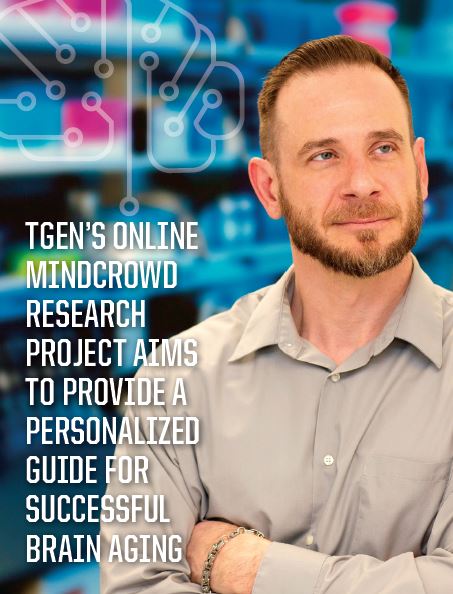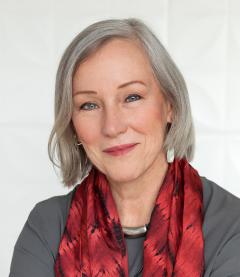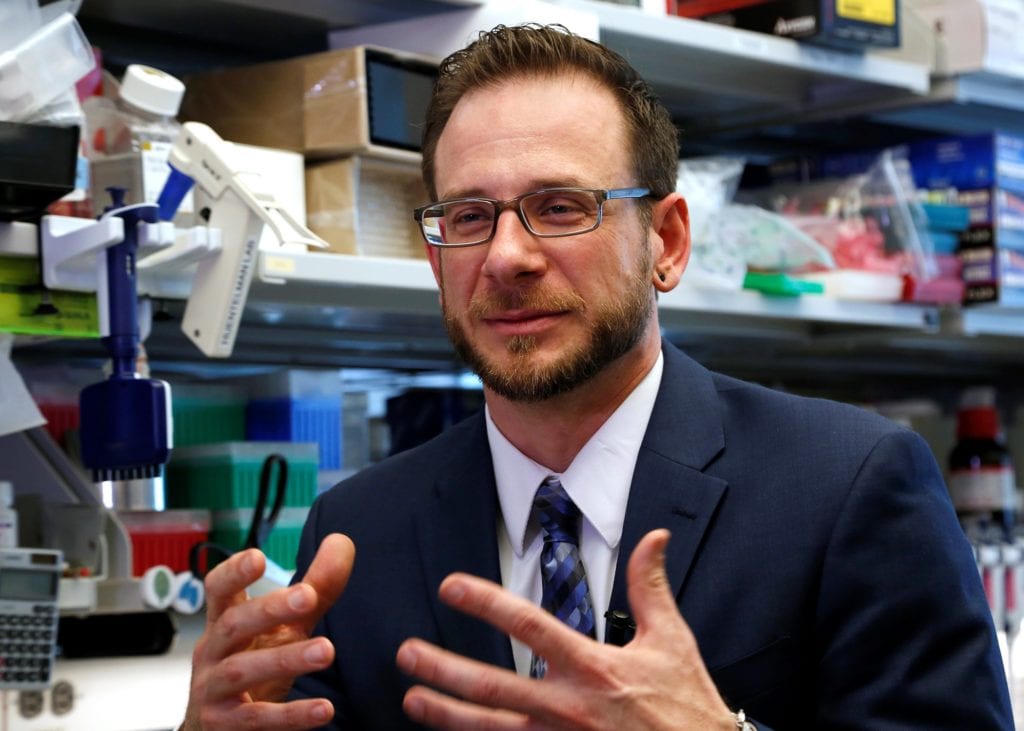
*This article first appeared in the Spring 2020 issue of Arizona Physician magazine, a publication of the Maricopa County Medical Society.
Listen to the Podcast
By Brian Powell
Flinn Foundation
A 10-minute online memory test is gathering data from around the world with the hope that one day physicians will be able to recommend a personalized way for their patients to improve brain performance as they age.
The MindCrowd research project, developed by the Phoenix-based Translational Genomics Research Institute, an affiliate of City of Hope, in partnership with the University of Arizona and Alzheimer’s Prevention Initiative, has been aided by more than 135,000 participants over the past seven years from all 50 states and more than 150 countries.
Matt Huentelman, Ph.D., MindCrowd director and a professor in TGen’s Neurogenomics Division, said the ongoing project’s goal is to better understand how the brain ages and develop guidelines for individualized precision aging, a concept similar to precision medicine, which is used to fight cancer and other diseases.
Precision aging targets could include diet, exercise, stress reduction, improved sleep or even therapeutics for patients through their senior years to match brain performance with life span.
“We want all of us to age as best as we can, and what that probably means for each of us is there’s a specific ‘prescription’ for how we should age by identifying the right balance based on your personal risk factors and personal lifestyle choices how to best age your brain,” Huentelman said. “We do think understanding how the brain ages can also play a significant role in helping us avoid or better understand Alzheimer’s disease.”
The MindCrowd Test
The MindCrowd web-based test, which remains open, starts by measuring reaction-time response to a red circle that appears, disappears, and randomly reappears multiple times.
The second portion is the word-pair memory test. Twelve pairs of words are shown in quick succession. After one word appears, the participant is asked to fill in the second word within three seconds. Then the process repeats two more times.
The results are provided immediately, including a comparison to the overall testing average and others in the same age bracket.
A follow-up survey asks questions that help us understand the risk factors that might predict a participant’s performance on the memory test, said Lee Ryan, Ph.D., professor and head of the University of Arizona Psychology Department in Tucson, who helped develop MindCrowd.
The test is not intended to, nor is it able to, diagnose Alzheimer’s disease or determine individual risk for developing Alzheimer’s disease in the future, according to a statement provided to MindCrowd participants, and does not make clinical recommendations.
Over the past year, MindCrowd has added versions in Spanish and Mandarin Chinese and revamped the test to be more culturally sensitive to the Latino population.
Huentelman said there’s a strong push to attract a more diverse population, including more African-Americans, Native Americans, and Latino participants, all of whom are understudied. Huentelman said this type of study is much easier for underserved groups to join than many investigations because people can participate from home and can remain anonymous if they choose too.
For those willing to provide contact information, the survey is provided shortly after the test, and further contact is possible in the future for individuals who meet the criteria for additional study.
The goal is to reach 1 million participants.
“It’s short, it’s sweet, we have fun, it’s under 10 minutes and you get to see your results,” Huentelman said. “At the end you can play with the data, and you can remain anonymous.”
Huentelman, who joined the Phoenix-based nonprofit medical research institute in 2004, focuses on diseases of the nervous system in his research. In addition to aging, Huentelman’s lab studies Alzheimer’s disease, cognition, and rare neurological diseases.

Ryan, a clinical neuropsychologist and associate director of the Evelyn F. McKnight Brain Institute at UArizona, studies how the brain changes with age utilizing magnetic resonance imaging, and how those brain changes result in problems for older adults with memory and problem solving. She also studies the risk factors for age-related cognitive problems.
Emerging Trends
A major finding from MindCrowd released last year is that participants with a family history of dementia or Alzheimer’s disease performed worse on the test than those without family history across all age groups up to 65, even as early as their 20s. This was especially true among men, and people with diabetes and lower educational attainment.
Huentelman said that doesn’t mean that young people are suffering from dementia or guaranteed to suffer from a brain disease later in life, but it’s known those with a family history do have a greater risk.
Ryan added, “These individuals do more poorly on memory testing, but we don’t know why at this point.”
MindCrowd has also revealed that increasing age correlates with lower memory performance. There is also a difference between the biological sexes, with women outperforming men on the memory test across the entire adult lifespan, not just among older age groups.
Yet Huentelman points out that just because you are aging doesn’t mean you have to decline at the exact same slope.
“There are plenty of 70-year-old people, for example, who perform on this test as if they were in their 20s and those folks are very interesting to us,” Huentelman said. “Is it their lifestyle, choices they’ve made, or is it their genetics that led to them being high performers for their age?”
Huentelman said he is excited to find these rare folks who beat the odds among the more than 20,000 participants so far over the age of 60.
“They might give us clues on how to best take care of your brain as you age, and might help us identify new biological targets so that we might be able to design drugs to prevent diseases of the brain like Alzheimer’s disease,” he said.

Image courtesy of TGen
Looking Ahead
Huentelman and Ryan are working on a large federal grant proposal to launch precision aging, including the expansion of MindCrowd and its demographic reach that will enable them to collect additional information about people’s cognitive function and predictors of their function.
And by following the participants over time, researchers can see who remains stable and who declines.
“That is critical information in understanding the trajectory of normal aging, and we hope will lead to new insights about how to intervene to help people maintain their cognitive function across the entire adult lifespan,” Ryan said.
Huentelman encourages everyone, ages 18 and up, to take the MindCrowd test, with an emphasis on participants ages 40 and above, including the elderly.
To take the test, visit MindCrowd.org. To learn more about TGen, visit tgen.org. To learn more about the Evelyn F. McKnight Brain Institute at UArizona, visit embi.arizona.edu/.
Listen to the Podcast
Read Spring 2020 issue of Arizona Physician